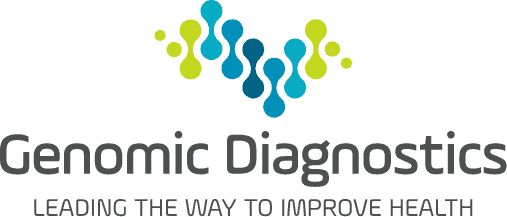Tumour Molecular Testing
Molecular testing of solid tumours has become increasingly important as actionable, therapeutic genetic variants are identified for a greater range of malignancies
The use of genetic testing to identify specific mutations within solid tumours is now commonplace in many oncological disciplines, with lung, melanoma, and colorectal cancer leading the way. Therapeutic agents (such as tyrosine kinase inhibitors) have been developed which act specifically in the presence of targeted actionable genetic variants. Genetic test results may enable patients to access appropriate treatments under the pharmaceutical benefit scheme.
This approach, known as precision medicine enables uniquely tailoring medications to optimise patient outcomes.

Specific activating mutations in KRAS and NRAS genes indicate there is likely to be reduced response to EGFR inhibitor therapy. Lack of activating mutations defines eligibility for accessing anti-EGFR therapies under the Pharmaceutical Benefits Scheme (PBS).
| Test Name | Colorectal cancer gene panel |
|---|---|
| Clinical Indication | Testing of metastatic colorectal cancer tumour tissue to determine the eligibility for access to cetuximab or panitumumab under the Pharmaceutical Benefits Scheme (PBS). |
| Gene(s) | KRAS, NRAS, BRAF, PIK3CA, EGFR |
| Method | MassARRAY |
| Turn around time | 1 week from receipt of sample |
| Medicare Eligibility | 73338 Criteria apply – dependant on tumour type and stage |
| Sample Type | FFPE Tumour Tissue |
| Special Instructions | 6 x 5 micron slides plus 1 x H&E stained slide required |
| Test Name | Melanoma Gene Panel |
|---|---|
| Clinical Indication | Testing of malignant melanoma tissue to determine eligibility for access to dabrafenib or vemurafenib under the PBS |
| Gene(s) | BRAF, NRAS, KIT |
| Method | MassARRAY |
| Turn around time | 1 week from receipt of slides |
| Medicare Eligibility | 73336 – Criteria apply |
| Sample Type | FFPE Tumour Tissue |
| Special Instructions | 6 x 5 micron slides plus 1 x H&E stained slide required |
| Test Name | BRAF V600 Mutations |
| Clinical Indication | Testing of malignant melanoma tissue to determine eligibility for access to dabrafenib or vemurafenib under the PBS |
| Gene(s) | BRAF |
| Method | PCR Genotyping |
| Turn around time | 1 week from receipt of slides |
| Medicare Eligibility | 73336 – Criteria apply |
| Sample Type | FFPE Tumour Tissue |
| Special Instructions | 6 x 5 micron slides plus 1 x H&E stained slide required |
Targeted identification of clinically important genetic variants in EGFR, MET, BRAF, ERBB2, KRAS and PIK3CA can be used to guide precision management, including access to targeted therapies under the Pharmaceutical Benefits Scheme, of patients with non-small cell lung cancer. Variants in EGFR confer sensitivity or resistance to EGFR tyrosine kinase inhibitors, while MET exon 14 skipping indicates sensitivity to tepotinib. Variants in BRAF, ERBB2, KRAS and PIK3CA provide prognostic information and potential benefit from emerging therapies. Testing is performed as a panel designed to detect recurrent variants across six genes. Testing limited to MET exon 14 skipping for access to tepotinib is also available on request.
| Test Name | NSCLC Gene Panel |
|---|---|
| Clinical Indication | Testing of non-small cell lung cancer tissue to guide choice of therapy. |
| Gene(s) | EGFR, BRAF, ERBB2, KRAS, PIK3CA, MET exon 14 |
| Method | Targeted detection of clinically important variants by MassARRAY using DNA/RNA |
| Turn around time | 1 week from receipt of slides |
| Medicare Eligibility | 73337 or 73351 or 73436 – criteria apply |
| Sample Type | FFPE Tumour Tissue |
| Special Instructions | >6 x 5 micron slides plus 1 x H&E stained slide required |
| Test Name | MET exon 14 |
|---|---|
| Clinical Indication | Testing of non-small lung cancer tissue to determine eligibility for access to tepotinib under the PBS. |
| Gene(s) | MET exon 14 |
| Method | MassARRAY using RNA |
| Turn around time | 1 week from receipt of slides |
| Medicare Eligibility | 73346 – criteria apply |
| Sample Type | FFPE Tumour Tissue |
| Special Instructions | Please consult the laboratory for required slide numbers. |
A broad range of FISH is available for the detection of non-random rearrangements and whole or partial chromosome aneuploidy that are associated with neoplasms including non-small cell lung cancer, sarcoma and lymphoma. FISH is a targeted investigation and has the benefit of screening large numbers of cells to detect clonal abnormalities.
| Test Name | FFPE Solid Tumour FISH |
|---|---|
| Clinical Indication | For diagnosis, classification and prognosis in solid tumour oncology. |
| Gene(s) | ALK, ROS1, IGH, MYC, BCL2, BCL6, MDM2, others as listed below |
| Method | FISH |
| Turn around time | 7 – 14 days |
| Medicare Eligibility | Lung (NSCLC): 73337; Colorectal Cancer (CRC): 73338; Metastatic Melanoma: 73336. Criteria applies to all. |
| Sample Type | FFPE Tumour Tissue |
| Special Instructions | 5 x 5 micron slides plus H&E stained slide required |
| Syndrome/Indication | Gene Locus | Chromosome Location |
|---|---|---|
| Non-small cell lung cancer | ALK | 2p23 |
| ROS1 | 6q22.1 | |
| Glioma | GLI | 12q13 |
| Liposarcoma | CHOP | 12q13 |
| FUS | 16p11 | |
| Alveolar rhabdomyosarcoma | FKHR | 13q14 |
| FOXO1 | 13q14 | |
| Synovial sarcoma | SYT | 18q11.2 |
| Ewings sarcoma | EWSR1 | 22q12 |
| Neoplasms | MDM2 amplification | 12q14.3 |
| Follicular lymphoma | IGH/BCL2 | t(14;18)(q32;21) |
| Mantle cell lymphoma | IGH/CCND1-XT | t(11;14)(q13;q32) |
| Non-Hodgkin lymphomas | IGH/MALT1 | t(14;18)(q32;q21) |
| Burkitt’s lymphoma | IGH/MYC | t(8;14)(q23;q32) |
Leading the way to improved health
results in the shortest turnaround time.



